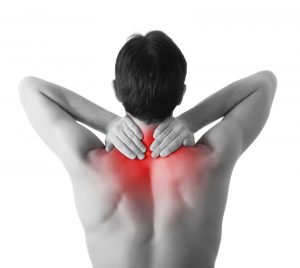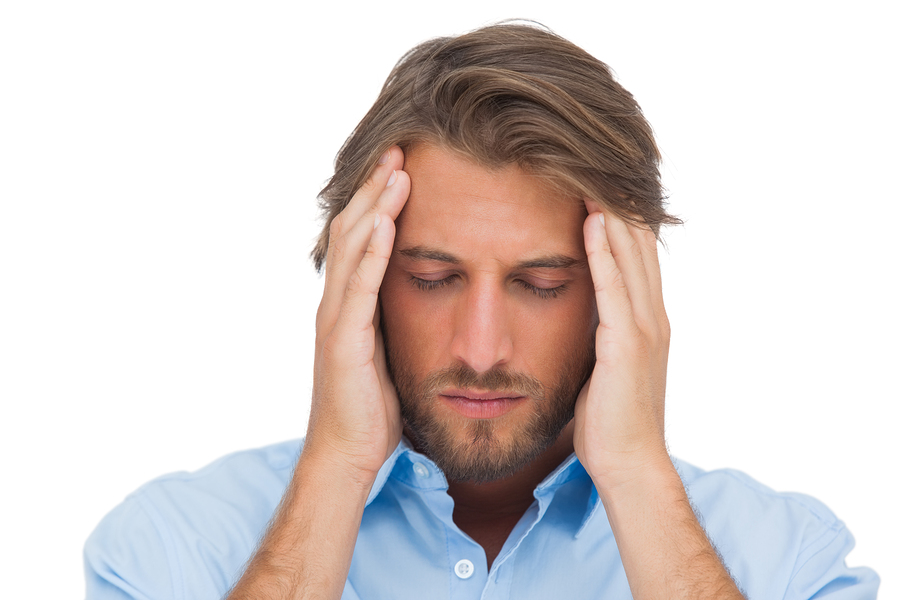
Man with neck or upper back pain.
Cervicogenic Headaches are the result of an injury or problems to the neck.
This article follows on from our previous blog post on Tension Headaches.
Symptoms: are usually a type of pain that is dull and achy around the base of the skull or one or both sides of the head. There may be a reduced range of motion of the neck and a worsening of the headache by certain neck movements. Patients may also have same-sided shoulder or arm pain associated with the headache. Nausea, vomiting, sensitivity to and sensitivity to sound may occur, but to a lesser intensity and frequency than in a migraine attack.
Treatment for a Cervicogenic headache:
- Osteopathy, Physiotherapy or Massage is usually the initial treatment for cervicogenic headache, where practitioners may use Acupuncture, Massage, Joint manipulation, and machines such as therapeutic ultrasound or Tens.
- Some GPs or specialists may administer a steroid or anaesthetic injection into a joint in the neck.
- If there is no specific physical cause, cognitive-behavioural therapy can also help.
- Surgery may be the last option for a patient when other treatments do not work.

Man with a possible sinus headache
Sinus Headaches
Symptoms of Sinus Headaches:
- A deep and constant pain in the cheekbones, forehead, or bridge of the nose.
- The areas may be painful to touch.
- The pain usually intensifies with sudden head movement, bending over or lying down.
- Other sinus symptoms, such as nasal discharge, feeling of fullness in the ears, cough and sore throat fever, and facial swelling will normally also be present.
Cause: Acute sinusitis is usually caused by an infection of the mucous membranes in your nose or upper airways, for example during a cold. During a cold the mucous membranes become swollen, which can block the openings of your sinuses, pressing on nerves there which causes pain. In some cases, mucous that builds up in your sinuses can become infected with a bacteria and cause more severe symptoms (bacterial sinusitis).
Treatment: Sinus headache treatment is usually two-pronged: you treat the headache pain itself while also treating the underlying cause.
- Medication.
- Over the counter pain relief – such as aspirin, paracetamol.
- Decongestant. These over-the-counter medicines help open the blocked sinus cavities by reducing the swelling in your nasal passages and reduce the amount of mucus.
- Antihistamine allergy medicines may help if your sinus problems are related to allergies. In some cases, your doctor may prescribe nasal steroid sprays and other drugs to help reduce your congestion and sinus headache pain.
- Keep your nasal passages moist. Dry air will further irritate your sinuses. So use a humidifier or vaporizer. Rest a warm wet towel over your face for a few minutes. Try a saline solution nasal spray.
- Avoid irritants. Perfume, cigarette smoke, and certain chemicals can worsen your sinus symptoms by irritating the nasal passageways.
- Physical therapy such as gentle head massage and especially Acupuncture have been shown to relieve the sinus pressure and pain.







